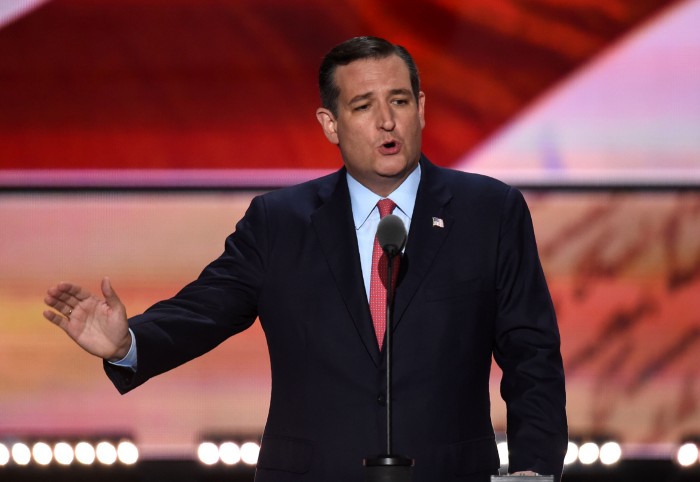Don’t Believe the Claims That the U.S. Is Giving Away the Internet
Contrary to what you might have heard from Senator Ted Cruz and other Republicans in Congress, the United States is not planning to “give away” the Internet to foreign governments. Instead, it is going along with an international plan to privatize several functions crucial to the maintenance of the global Internet. In fact, many U.S. officials, Internet policy experts, and technology companies say this move is essential to keeping the Internet free of government meddling.
If all goes as planned, on October 1 the National Telecommunications and Information Administration, which is part of the U.S. Commerce Department, will relinquish its role as the “steward” of several roles in Internet governance. These responsibilities include maintaining the database of codes and numbers used in routing Internet traffic and managing the records of who owns certain “top-level” Internet domains (like .com and .uk).

But while the NTIA has been the steward of such duties, it has not actually been carrying them out. Instead, the duties have been handled by a California-based nonprofit called the Internet Corporation for Assigned Names and Numbers, or ICANN. And ICANN is still on tap to fulfill the responsibilities. All that’s changing now is that ICANN’s contract with the NTIA is expiring. After October 1, ICANN will be doing the work on behalf of an international “multistakeholder community” composed predominantly of technology companies.
Why the change? To finally remove all government control from global Internet governance.
The U.S. has been overseeing these duties because the Internet originally grew out of Defense Department research in the 1960s. In 1998, the Department of Commerce formalized the process by creating ICANN. But privatizing it has been the goal ever since, Lawrence Strickling, assistant secretary for communications and information at the NTIA, said during a Senate Judiciary subcommittee hearing last week. (The United States and other governments will continue to advise ICANN.)
The argument, championed by Cruz, that the transition will cede control to foreign governments is “the opposite of the truth,” according to Milton Mueller, a professor of public policy at Georgia Tech and cofounder and co-director of the Internet Governance Project. The purpose of ICANN, which Mueller helped create, is to keep Internet governance out of the hands of governments, he says.
Mueller adds that if the United States does not honor the agreement to privatize these functions, it could lend weight to arguments from nations such as China and Russia that Internet governance should be nationalized or turned over to the United Nations.
That prospect spooks several top technology companies. Several of them, including Amazon, Facebook, and Google, have sent a letter to congressional leaders urging them to move forward with the planned transition for the sake of “economic and national security.”
“The Internet is defined by its inclusivity and openness,” the letter says. “Those critical characteristics are reflected in the work that ... went into the drafting of this transition proposal, which is ready to be executed.”
Keep Reading
Most Popular
Large language models can do jaw-dropping things. But nobody knows exactly why.
And that's a problem. Figuring it out is one of the biggest scientific puzzles of our time and a crucial step towards controlling more powerful future models.
The problem with plug-in hybrids? Their drivers.
Plug-in hybrids are often sold as a transition to EVs, but new data from Europe shows we’re still underestimating the emissions they produce.
Google DeepMind’s new generative model makes Super Mario–like games from scratch
Genie learns how to control games by watching hours and hours of video. It could help train next-gen robots too.
How scientists traced a mysterious covid case back to six toilets
When wastewater surveillance turns into a hunt for a single infected individual, the ethics get tricky.
Stay connected
Get the latest updates from
MIT Technology Review
Discover special offers, top stories, upcoming events, and more.